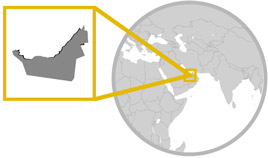Education in Kuwait is highly regarded, and the government places a strong emphasis on providing quality education to its citizens and residents. Here is an overview of the education system in Kuwait, including information on students and private schooling:
Education System in Kuwait:
Structure: The Kuwaiti education system consists of three levels: basic education, intermediate education, and secondary education. Higher education is also available at universities and colleges.
Basic Education: Basic education in Kuwait is compulsory for all Kuwaiti citizens and is provided free of charge in government schools. It includes a 9-year program divided into three stages: primary (grades 1-4), intermediate (grades 5-7), and preparatory (grades 8-9).
Intermediate Education: After completing basic education, students can continue their education in intermediate schools. Intermediate education is not compulsory, but it serves as preparation for secondary education. Intermediate schools offer various academic and vocational tracks.
Secondary Education: Secondary education is a three-year program and is the final stage of pre-university education in Kuwait. Students take the Kuwaiti General Secondary Education Certificate Examination (Tawjihi) at the end of this stage, which determines their eligibility for university admission.
Higher Education: Kuwait has several universities and colleges offering undergraduate and postgraduate programs. Kuwait University is the country's largest and most prominent institution of higher education.
Students in Kuwait:
Kuwait's education system is open to Kuwaiti citizens and expatriate residents. Expatriate children can enroll in private or international schools.
The Ministry of Education is responsible for overseeing public and private schools in Kuwait and ensuring that educational standards are met.
Kuwaiti students receive free education, including textbooks and school supplies, in government schools. Education is provided in Arabic, with English often taught as a second language.
Private Schooling:
Private schools in Kuwait are an option for both Kuwaiti and expatriate students.
Private schools offer a variety of curricula, including American, British, Indian, and International Baccalaureate (IB), among others.
Private schools often have smaller class sizes, a more diverse student body, and a broader range of extracurricular activities compared to government schools.
Tuition fees in private schools vary widely depending on the school's reputation, curriculum, and facilities.
Important Considerations:
For expatriate families, the choice between public and private education depends on various factors, including budget, curriculum preferences, and the length of their stay in Kuwait.
It's important to research and visit schools, talk to other parents, and consider the curriculum and extracurricular activities offered when choosing a school for your child.
Private schools often have competitive admission processes, so it's advisable to begin the application process well in advance of the school year.
Overall, Kuwait offers a range of educational opportunities for students, both in the public and private sectors. Families should carefully consider their educational priorities and budget when making decisions about their children's schooling in Kuwait.

